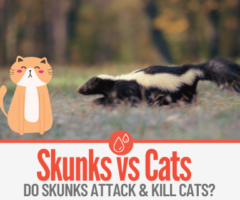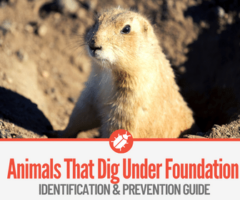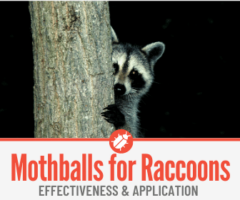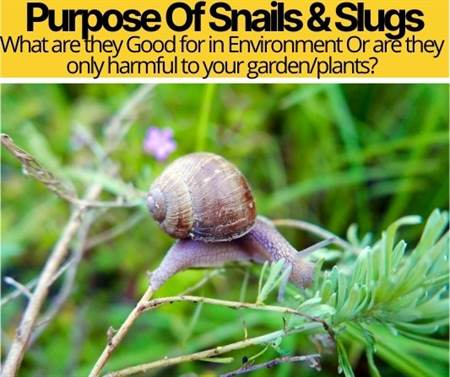 We have all encountered that pungent smell and immediately known that it was a skunk.
We have all encountered that pungent smell and immediately known that it was a skunk.
However have you ever considered what the purpose of a skunk might be and What skunks are good for in the Environment?
In this article we will cover why are skunks Important and what do they do.
You might be surprised to find out that skunks are actually good to have around and are even a form of natural pest control.
What are Skunks Good For & What is the purpose of them
Skunks are conveniently, if not surprisingly, one of the most efficient and effective natural pest controllers to their natural environment. Skunks have very few natural predators. Combined with their lack of predators and a skunk being an omnivore with a hearty natural diet and you have a very versatile and adaptive creature.
Skunks will happily eat a varied diet that includes, but is not strictly limited to include berries, birds, earthworms, eggs, frogs, fungi, grass, grubs, insects and insect larvae, leaves, lizards, mice, moles, nuts, plant and small tree roots, salamanders, shrew, and snakes. The skunk’s ability to eat such a wide range of foods and adapt to the foods that are available to them is part of their charm.
In fact, the skunk is often known to eat things that many other animals won’t touch such as stink bugs, this is why skunks are incredibly good.
Skunks that live close to humans have even been known to seek out food from garbage, food left outside for pets, and gardens with fruit or vegetables. On this, skunks may be seen as more of a pest than an asset by property or homeowners, but truly they are only acting as the natural scavengers that they are.
Importance of Skunks
A skunk’s ability to manage insect and rodent populations in their environment, as well as their ability to deter other animals within their own territory makes them an important part of their environment. Skunks generally maintain a territory of roughly two miles.
Within that two-mile range they like to have a water source, a food source, and a den. If their needs are met, a skunk can successfully maintain the population of snakes, bugs, and small rodents such as moles. Additionally, having a skunk around can keep larger pests such as wolves, foxes, racoons, and domestic pets away from your home.
Are Skunks Beneficial to the Environment?
Skunks are greatly beneficial to the environment. Managing the insect population is a huge undertaking that skunks happily take on. This is especially true when it comes to insects such as stink bus, wasps, and mosquitoes that are especially bothersome by nature.
Skunks, similar to some other animals in nature, also help with maintaining the environment by eating things like fruits and vegetables. Especially the vegetation that has fallen off of the plant and begins to rot on the ground. As scavenger animals, the skunk is essentially a natural garbage man in many ways.
They can also be helpful to landowners by eating rodents like moles and shrews that terrorize property owners land, gardens, fields, and crops. Skunks clean up ground foliage and eat many of the insects that could otherwise infest crops, fruit trees, and berry bushes as well.

What Do Skunks Do?
Skunks are a nocturnal animal. They come out at night to find food and water mostly. Skunks are typically loners, however, during mating season and during the winter months when temperatures are cold, this is when skunks are found to socialize with one another, and to congregate for warmth.
Most skunks socialize for mating between September and March depending on the skunk species and where they are located geographically. Similarly, this is also most often the times that skunks may be found in dens together for the purpose of group warmth.
During pregnancy, birth, and nursing female skunks are known to stay closer to their dens for the protection it provides and do not venture as far or stay out as long during these times.
Baby skunks are generally born between March and May each year. They nurse for roughly six weeks. Which means that they most often stay with their mothers through the rest of the cold to cool months after their birth. Once weaned, they then go off on their own in late spring to early summer. From that point on they typically will be alone until the weather turns cold, before seeking out the warmth of a community den during the cold winter months just like their parents.
Purpose of Skunk Spray
The purpose of a skunk’s spray is mostly for protection, though they can use it to mark their territory as well. However, it is not a skunks first choice in defending itself or its young. Skunks develop their scent glands at around five to six weeks old. Conveniently this is also about the time that they stop nursing and venture off on their own.
Each skunk can hold up to about four tablespoons of muck in their scent glands at any given time. Once used to fend off would-be attackers it can take a skunk’s body several days to replenish their supply. During that time skunks are at their most vulnerable.
A skunk’s scent or musk glands are located by their anus, one on either side. Uniquely a skunk’s scent glands have a nipple shaped appearance to them with an opening in the center peek. The special design of these scent glands allow the skunk to direct their aim and to affect the spray from a broad mist or fog into a targeted stream. The skunk has a total range of about twenty feet from their body, though their accuracy is limited to about the first ten feet.
So, ideally, the skunk will use the fine mist of musk when dealing with a predator farther away or when handling multiple predators at once because the animal or multiple animals will be forced to walk through such a cloud of musk if they wish to actually get to the skunk.
The stream of musk is a more effective tool for predators that are up close, and a skunk has the ability to aim directly at them for their attack. If a skunk is able to hit the threat directly in the face, especially in the eyes, he can render his attacker blind for days after suck an attack. In any event, the scent alone will drive off most animals who were considering the skunk for a meal.
Are Skunks Predators?
Skunks are only predators of small animals like insects, lizards, frogs, snakes, ground birds, moles, and mice. Almost all of their pray are small insects or creatures. Aside from such small snacks, skunks are not really a predator.
They are also not much of a pray to most other animals. While many animals might consider eating a skunk from time to time, it is most often only a one-time thought. After a run-in with a skunk, most predators remember the creatures and do not make the same attempt again.
For the most part skunks are shy. Their first line of defense is their coloring which can be clearly seen by other nocturnal creatures. If given a choice they will flee from a threat before they will attempt to fight it off. If a predator or other threat pursues the skunk and does not leave it be, the skunk will stand its ground and fight back.
Some might be surprised to find that skunks do not use their spray as the first line of defense. In fact, spraying is the very last line of defense that a skunk will utilize in order to defend itself. The first choice is to flee.
If that fails, depending on the species of skunk, they will stomp their front paws, paw outward at the predator with their sharp claws, hiss, and raise its tail all in warning as a means to deter their enemy. It is only when these methods fail that a skunk will concede to these methods and spray their enemy if they fail to be otherwise deterred.
Related Topics:
How Smart are Skunks
Skunks are an exceedingly intelligent animal and they are also sensitive. While they are very much the “loner” type, they are also smart enough to congregate together to stay warm during the coldest times of the year. They posses the smarts and ability to know not to use their musky spray unless it is an absolute necessity, and they are capable of aiming and adjusting the spray that they use.
Further, skunks are smart enough to only have dens that are in close proximity to water, and generally chose to make a home where there is a diverse range of foods available to them.
How far do Skunks Roam
Skunks generally roam a roughly two-mile area around their den. When pregnant and nursing, female skunks will not venture as far from their dens as they typically would though. In saying that, skunks also try to ensure varied food sources and a fresh water source within the area that they roam.






